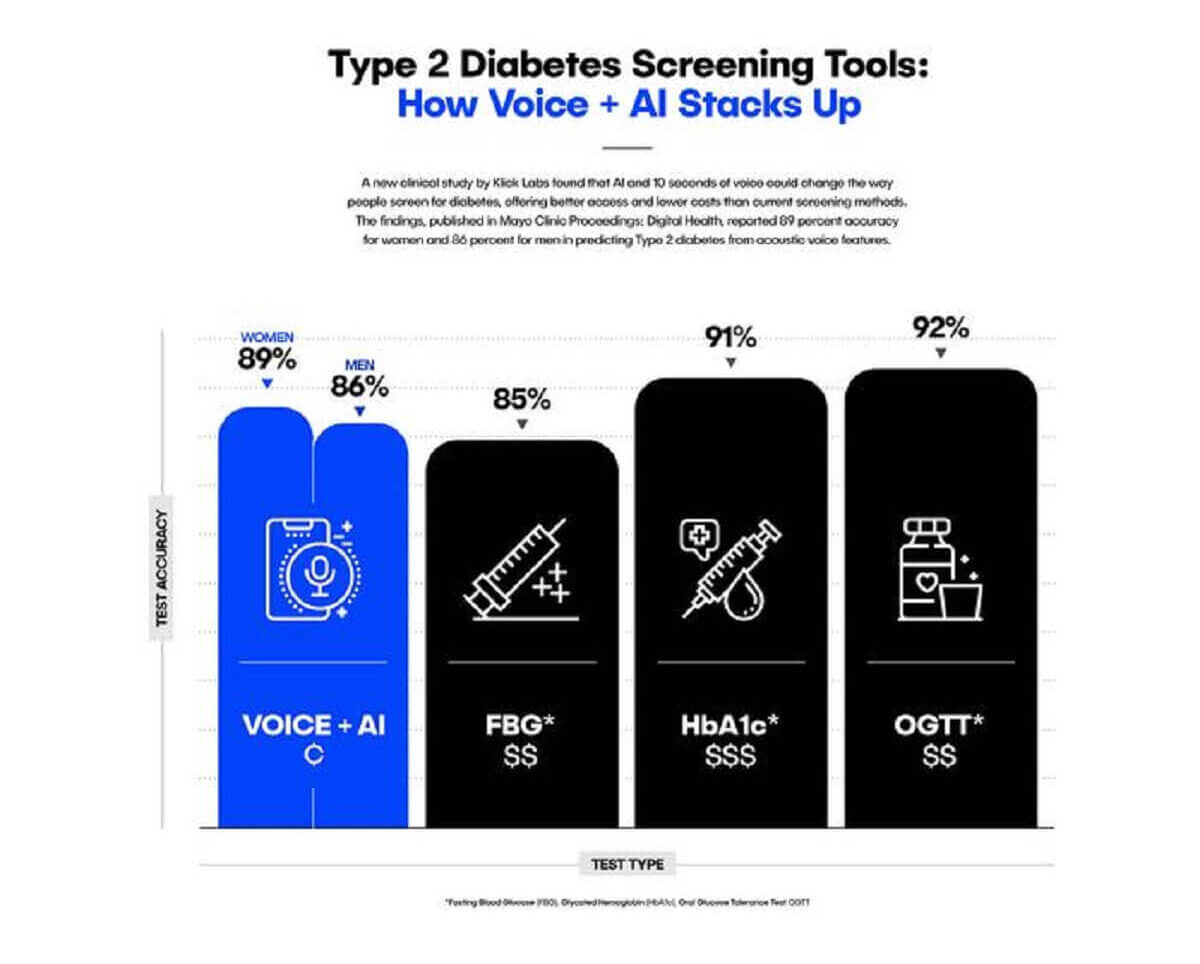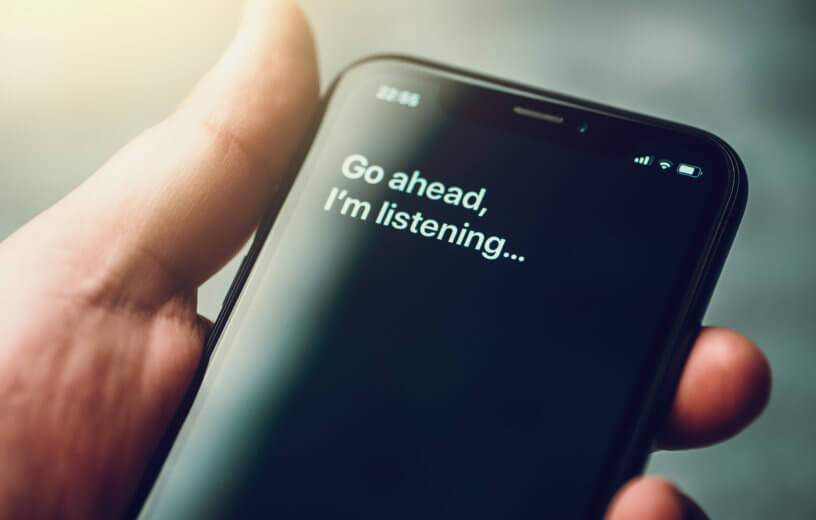TORONTO, Ontario — Between six and 10 seconds of a voice clip is all a new artificial intelligence (AI) needs to diagnose Type 2 diabetes, presenting a potential breakthrough in screening for the disease. This novel diagnostic method, which has been labeled a “potential game changer,” allows individuals to screen themselves for the disease by simply uttering a few sentences into their smartphones.
The study merges voice technology with artificial intelligence. It could play a pivotal role in identifying the vast number of individuals with undiagnosed Type 2 diabetes.
Developed by Klick Labs in Toronto, the team reports that their test has an accuracy rate of 89 percent for women and 86 percent for men. The technology utilizes a brief six to 10-second voice recording and basic health data, such as age, gender, height, and weight. This information feeds into an AI model designed to determine if an individual has Type 2 diabetes.
For the study, 267 participants, identified as either non-diabetic or Type 2 diabetic, were instructed to record a specific phrase on their smartphone six times a day over a span of two weeks. From the amassed 18,000+ recordings, scientists examined 14 distinct acoustic attributes to discern differences between the two groups.

The research team delves deep into vocal characteristics, identifying subtle changes in pitch and intensity that are imperceptible to the human ear. Through advanced signal processing, the researchers could pinpoint vocal alterations caused by Type 2 diabetes, noting that these changes differed between men and women.
“Our research highlights significant vocal variations between individuals with and without Type 2 diabetes and could transform how the medical community screens for diabetes,” says Jaycee Kaufman, the paper’s lead author, in a media release. “Current methods of detection can require a lot of time, travel, and cost. Voice technology has the potential to remove these barriers entirely.”
Globally, nearly half of the 480 million adults with diabetes are unaware of their condition. Furthermore, approximately 90 percent of all diabetic cases are Type 2. According to the Centers for Disease Control and Prevention (CDC), approximately 34.2 million people in the United States, or 10.5 percent of the population, have diabetes. Type 2 is often linked to lifestyle factors, with poor diet and obesity being primary contributors.
“Our research underscores the tremendous potential of voice technology in identifying Type 2 diabetes and other health conditions,” says Yan Fossat, Vice President of Klick Labs and the study’s principal investigator. “Voice technology could revolutionize healthcare practices as an accessible and affordable digital screening tool.”
He further notes its potential applications, including tests for high blood pressure, prediabetes, and various women’s health issues.
The study is published in the journal Mayo Clinic Proceedings: Digital Health.
You might also be interested in:
- Just 2 servings of red meat a week is enough to cause Type 2 diabetes, study warns
- Artificial intelligence can tell if you’ve got heart problems simply by the sound of your voice
- The tongue is the window to your health: AI revives 2,000-year-old practice to diagnose diseases
South West News Service writer Jim Leffman contributed to this report.

Lea la versión en español en EstudioRevela.com: Nueva herramienta puede diagnosticar la diabetes tipo 2 con tan solo 10 segundos de tu voz.
